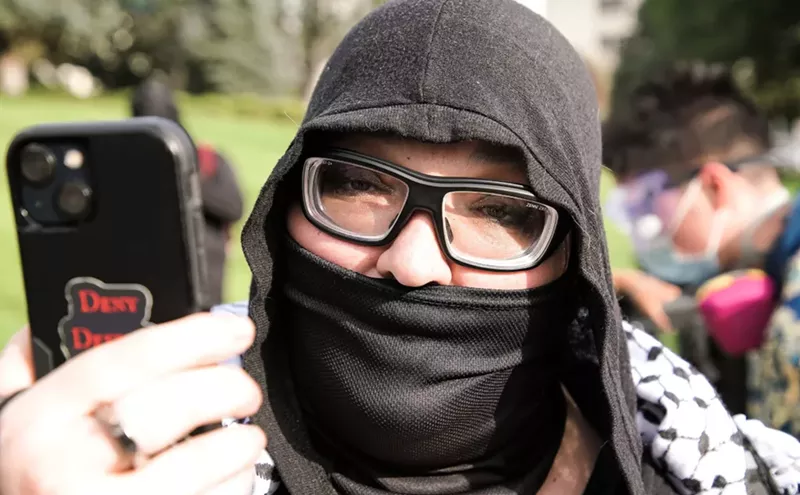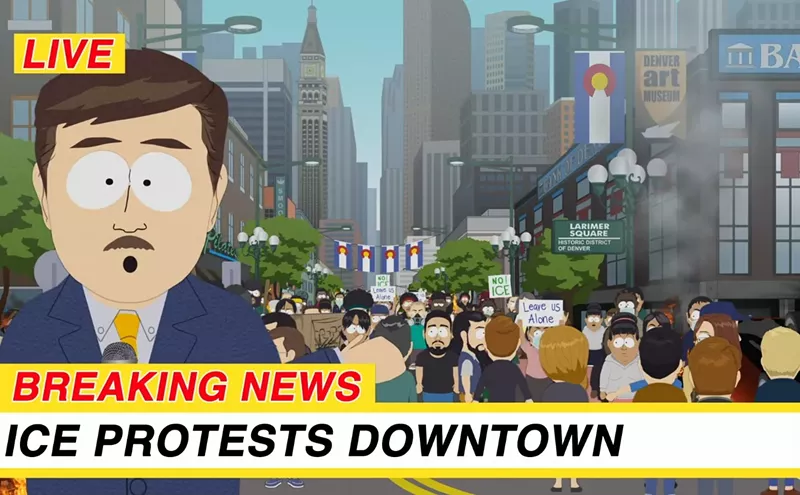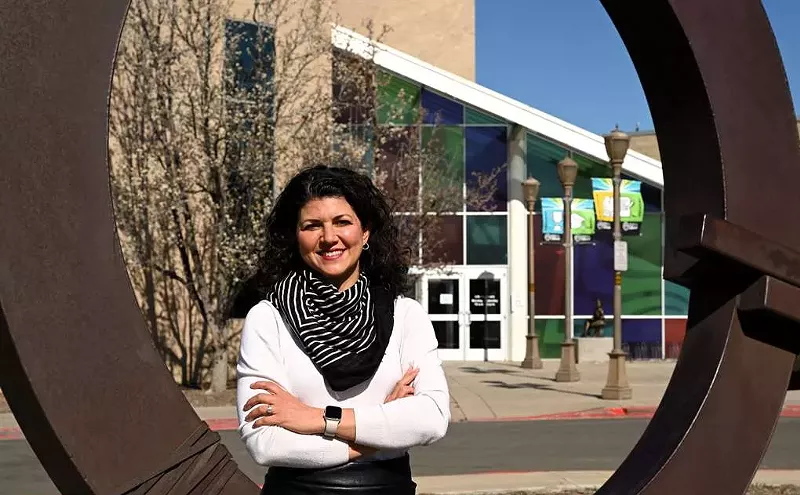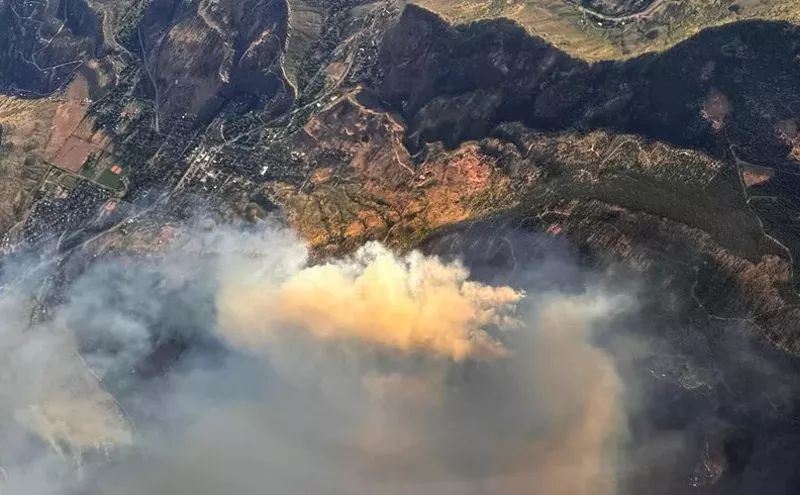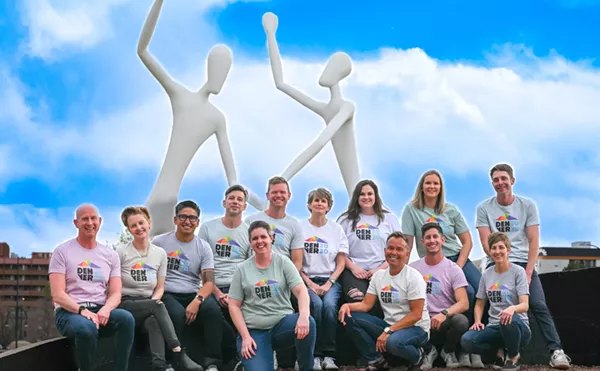A man must have a battle to fight, a great mission to his life that involves and yet transcends even home and family. He must have a cause to which he is devoted even unto death, for this is written into the fabric of his being. Listen carefully now: you do. That is why God created you — to be his intimate ally, to join him in the Great Battle."
So says John Eldredge, whose own great mission started after he moved to Colorado in 1991 to join the staff at Focus on the Family, got a degree in counseling at Colorado Christian University; launched Ransomed Heart Ministries, "a fellowship devoted to helping people discover the heart of God" in 2000; then proceeded to write several books, including 2001's Wild at Heart: Discovering the Secret of a Man's Soul, which has sold 2.5 million copies.
At least a few of those copies made their way into the hands of La Familia Michoacana, the newest, most violent of the Mexican drug cartels, which announced its presence in September 2006 by rolling five severed heads onto a nightclub dance floor in Uruapan, Michoacán, and "whose depradations pervade the life of the region," writes William Finnegan in his May 31 "Letter From Mexico" in the New Yorker.
La Familia has an unusual source of inspiration for its own great mission: Wild at Heart, which is required reading (in Spanish translation) at the cartel's training camps. The book rates four mentions in an internal Mexican justice-department memo produced last year, describing La Familia's recruitment campaign for converts who'd like to deliver "la divina justice," or divine justice, which is how Nazario Moreno González, the gang's leader who's also known as El Chayo and El Más Loco, describes the murderous tactics with which La Familia has terrorized Michoacán. González, who has a $2 million price on his head, not only encourages his trainees to read Eldredge's work, but has reportedly paid teachers to peddle the words of Wild at Heart around the countryside.
Although the New Yorker piece only devotes a line or two to Eldredge, that was enough to bring increased attention to the heart of Ransomed Heart Ministries. And last Friday, the office in Colorado Springs (what's in the water in those springs, anyway?) released this statement from Eldredge, who's on sabbatical until fall, regarding the unusual book club in Michoacán: "People have used the Bible to justify a lot of evil actions. It brings me sorrow and anger to know they are doing this, and I renounce their use of my words in this way. If they'd actually read the book, they would know that submission to Jesus is central to the entire message. They seemed to have missed the central point which gives context to everything else."
But then, people who roll heads across nightclub floors tend to miss the subtleties of context.
Eldredge, whose religious kingdom has expanded to include boot camps where campers go on a four-day quest to recover their masculine soul and four-day "Captivating" workshops for women, as well as international events and seminars, published a revised version of Wild at Heart this year. "I am humbled to say," he says in an update to the introduction, "the fruit of this little book has been, well, unlike anything I've ever seen. Utterly phenomenal. It has healed the lives of prisoners in Colombia, set the hearts of Catholic priests free in Slovakia. It has reached the halls of Congress and the back rooms of homeless shelters, restored the families of men in Australia, launched a movement of freedom and redemption in men around the world. It works."
Like God, it sometimes works in mysterious ways, judging from the book's fans south of the border.
Both the original and revised versions of Wild at Heart (Eldredge didn't update much, according to his office) are littered with biblical passages — including this tone-setting one from Matthew 11:12: "The kingdom of heaven suffers violence, and violent men take it by force." Then there are quotes from such manly men as Teddy Roosevelt and Robert Bly, quotes from not-so-manly men like Cole Porter, discussions of D-Day and fly fishing, and many, many references to movies: A River Runs Though It. A Perfect World (with a lengthy discussion of why the kid with killer Kevin Costner is initially in his underwear), The Natural and, of course, Gladiator.
Eldredge's words are not the namby-pamby prose of Promise Keepers, that other homegrown religious movement that's been creating "men of integrity" since 1990 and will be back in Denver in August. "The problem with men, we are told, is that they don't know how to keep their promises, be spiritual leaders, talk to their wives or raise their children," Eldredge writes. "But, if they will try real hard they can reach the lofty summit of becoming...a nice guy. That's what we hold up as models of Christian maturity: Really Nice Guys."
Nice guys do not finish first in Eldredge's book. Males are born to be warriors, not wimps, and Wild at Heart is designed to put the fight back into a man, not turn a warrior into a nice guy. When one of his three sons was bullied at school, the author tells us, he told the boy to punch his tormenter as hard as he could. "Yes," Eldredge writes, "I know that Jesus told us to turn the other cheek. But we have really misused that verse."
We misused it in Colorado a decade ago, he suggests. "Most of you will remember the tragic story from April 1999. Two boys walked into the school library and began shooting; when it was all over, thirteen victims and their two assailants were dead.... The idea, widely held in our culture, is that the aggressive nature of boys is inherently bad, and we have to make them into something more like girls," Eldredge says. "That's not the way a boy is wired, and it's not the way a boy learns. Rather than changing the way we do male education, we try to change males." The result? Columbine.
Eldredge goes on, and on, and on, describing how "our society produces plenty of boys, but very few men." He tells of getting the best gift ever from his wife: a full-sized claymore, a Scottish broadsword exactly like the one used by William Wallace, "because you are a Braveheart, fighting for the hearts of so many people." (Is it possible that Gary Faulkner carried a copy of Wild at Heart with him to Afghanistan, along with his own Bible and a forty-inch sword? That's a guy who definitely has a "battle to fight.") He tells stories of the Civil War, of rock climbing, of John Wayne.
But even with all the movies name-checked in Wild at Heart, Eldredge somehow misses the one that has the most relevant message here: Romancing the Stone. That's the 1984 block- (and bodice-) buster in which Kathleen Turner and Michael Douglas go to Colombia to battle a drug cartel and discover that the very worst banditos are surprise fans of Joan Wilder, the romance novelist who is Turner's alter ego.
Because as it turns out, when he's not busy ordering hits and ordering his recruits to read Wild at Heart, González has taken to penning his own treacly, pseudo-spiritual wisdom on how, "if you want, you can become a good Christian," which he collected in a 104-page booklet called Thoughts and now hands out to his troops (no New York Times bestseller for El Más Loco).
"If you want to say, 'I love you!' to those who surround you and to your friends," González pronounces, "Say it today."
Because if you live in Michoacán, you may not be around tomorrow. Focus on La Familia.
For daily updates, read Patricia Calhoun's Wake-Up Call on the Latest Word at westword.com. Contact the author at [email protected].



